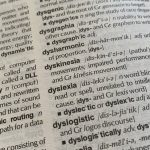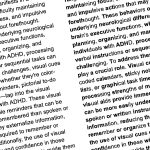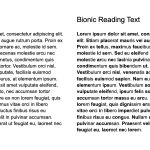Abstract
Special education plays a vital role in the broader educational framework, catering to children with diverse learning requirements. Central to this is the Special Educational Needs Coordinator (SENCO), who orchestrates the support provided to these children. This article elucidates the role, responsibilities, and qualifications of a SENCO. It also provides insights into when one should consult a SENCO, their salary range, and how parents can aid them. By understanding the intricate aspects of a SENCO’s role, educators, parents, and communities can collaboratively ensure that every child reaches their potential, regardless of their unique educational needs.
Introduction
Special education is an integral part of the broader educational system, ensuring that children with diverse learning needs receive the support they require to thrive. At the heart of this system is the Special Educational Needs Coordinator (SENCO), a pivotal figure who manages and facilitates the provision of support for children with special needs. In this essay, we will explore the role, responsibilities, qualifications, and training of a SENCO, as well as delve into when to consult a SENCO, their expected salary, and how parents can support them in their mission.
What is SENCO?
SENCO stands for Special Educational Needs Coordinator. This professional typically works within educational settings, such as schools, to manage and support the education of children with special educational needs (SEN). These are children who require additional support due to learning difficulties, disabilities, or other unique challenges that might impede their standard educational journey.
SENCO Meaning
The title itself encapsulates the essence of the role: to coordinate and ensure that children with special educational needs are identified, supported, and provided with the appropriate resources and interventions. This means collaborating with teachers, parents, and external agencies to develop Individual Education Plans (IEPs) tailored to the specific needs of the child.
SENCO Responsibilities
A SENCO’s duties are multifaceted. Key responsibilities include:
1. Identifying pupils with SEN and ensuring they receive appropriate support.
2. Overseeing the day-to-day operation of the school’s SEN policy.
3. Liaising with parents of children with SEN.
4. Working with other educators and school staff to provide guidance on how to best support students with SEN.
5. Collaborating with external agencies, such as educational psychologists, health professionals, and social services.
6. Training and advising fellow teachers on SEN matters.
7. Managing SEN resources, including budgets and equipment.
SENCO Qualification
To become a SENCO in many regions, an individual needs a recognised qualification specific to the role, often on top of their teaching qualification. For instance, in the UK, new SENCO’s are required to achieve the National Award for Special Educational Needs Coordination within three years of taking on the role.
SENCO Training
Training equips potential SENCO’s with the knowledge and skills needed to effectively support students with diverse needs. This training often covers areas such as:
· Understanding different types of SEN
· Implementing effective strategies and interventions
· Legal requirements related to SEN
· Collaborative practices for working with parents and external agencies
When to Consult a SENCO
Consultation with a SENCO is essential whenever a child demonstrates consistent difficulties in their learning which cannot be resolved through standard classroom interventions. Teachers and parents should seek guidance from the SENCO if:
· A child is falling significantly behind their peers in particular areas.
· There are concerns about a child’s behavioural, emotional, or social development.
· A child has a diagnosed condition that impacts their learning.
SENCO Salary
The salary of a SENCO varies based on the region, level of experience, qualifications, and the specific institution they work for. Typically, SENCO’s earn a competitive salary reflective of their specialist knowledge and the importance of their role within the educational system.
· A SENCO in a primary school might expect a salary ranging from £25,000 to £40,000 or more.
· In secondary schools, due to the increased responsibilities and larger student populations, the salary can be a bit higher, often between £30,000 and £50,000 or more.
How Can Parents Help SENCO’s?
Parents play a vital role in the support system for children with SEN. To assist SENCO’s:
1. Open communication: Regularly communicate with the SENCO about your child’s needs, progress, and any concerns.
2. Engagement: Attend meetings, workshops, and events organised by the SEN department.
3. Collaboration: Work closely with the SENCO to implement strategies and interventions at home.
4. Feedback: Provide feedback on what’s working and where additional support might be needed.
Conclusion
SENCO’s are crucial figures in the educational landscape, ensuring that every child, regardless of their unique needs, has the opportunity to achieve their potential. With a deep understanding of their roles, qualifications, and responsibilities, parents, teachers, and the broader community can collaborate more effectively to support the invaluable work they do.
FAQ
How has the role of a SENCO evolved over the past decade?
Over the past decade, the role of a SENCO has expanded beyond the confines of schools to encompass broader community and multi-agency collaboration. Emphasis has shifted from mere identification of special needs to devising holistic, inclusive strategies that integrate SEN students into mainstream environments. Technological advancements have further equipped SENCO’s with digital tools and resources, enhancing personalised learning experiences. Moreover, there’s a greater focus on continuous professional development, ensuring SENCO’s are well-versed with the latest methodologies and research in special education.
What is the impact of technology on the practices and strategies implemented by SENCO’s?
The advent of technology has profoundly influenced the practices and strategies employed by SENCO’s in modern educational settings. Digital tools and assistive technologies have enabled the creation of personalised learning pathways, catering to the unique needs of each student with special educational requirements. From interactive apps that support speech and language development to software that aids in cognitive processing and motor skills, technology has expanded the range of interventions available. Furthermore, technology has facilitated enhanced communication between educators, specialists, and parents, streamlining the collaborative approach essential for supporting SEN students. This digital shift not only fosters a more inclusive learning environment but also empowers SENCO’s with data-driven insights to continually refine and adapt their strategies for optimal student outcomes.
How do SENCO’s adapt to the diverse cultural and linguistic backgrounds of students?
SENCOs recognise the intricate interplay between cultural and linguistic diversity and special educational needs. To effectively adapt, they employ a culturally responsive approach, ensuring that assessments and interventions are free from cultural biases. They collaborate closely with families, tapping into their unique cultural insights to inform and tailor support strategies. Furthermore, they might use multilingual resources or seek assistance from interpreters to bridge language barriers, ensuring that every child’s needs are understood and met. By integrating cultural competence into their practice, SENCO’s promote an inclusive environment where students from diverse backgrounds feel valued and supported.
What are the key challenges SENCO’s face in rural versus urban educational settings?
SENCO’s in rural settings often grapple with challenges distinct from their urban counterparts. Limited access to resources, such as specialised therapeutic services or assistive technologies, can constrain the support they provide. Rural areas may also face a shortage of trained professionals, making collaboration and continuous professional development more challenging. Moreover, geographical isolation can lead to reduced exposure to diverse teaching methodologies and fewer opportunities for peer networking. Conversely, urban settings, while typically better resourced, may present SENCO’s with a higher density of SEN students, diverse linguistic and cultural challenges, and the complexities of navigating larger educational bureaucracies.
How do SENCO’s collaborate with other educational staff in integrated versus specialised schools?
In integrated schools, where SEN students learn alongside their mainstream peers, SENCO’s play a pivotal role in fostering collaboration among staff to ensure an inclusive environment. They guide teachers on differentiating instruction, adapting curricular materials, and employing specific interventions tailored to diverse needs. Regular team meetings facilitate the sharing of strategies, insights, and progress updates. In contrast, within specialised schools, where the primary focus is on students with specific disabilities or challenges, SENCO’s often work with a more specialised team, delving deeper into tailored educational methods and therapies. Here, the collaboration is more intensive, with a unified focus on specialised strategies, ensuring that the expertise of each staff member is harnessed to optimise the learning outcomes for SEN students.
Are there international standards or guidelines for SENCO practices, and how do they compare across countries?
International standards for SENCO practices aren’t universally standardised, but several global organisations, such as UNESCO and UNICEF, provide guidelines on inclusive education and the support of learners with disabilities. These guidelines often emphasise the importance of access, equity, and quality in education. However, the interpretation and implementation of such recommendations vary across countries, due to differences in cultural, societal, and educational contexts. Some nations, like the UK, have established robust frameworks and qualification requirements for SENCO’s, while others might be in the nascent stages of defining and refining their practices. Thus, while overarching principles of inclusive education and support for special needs are recognised globally, the specifics of SENCO roles and practices can differ considerably from one country to another.
How do SENCO’s measure the effectiveness of their strategies and interventions?
Measuring the effectiveness of strategies and interventions is pivotal for SENCO’s to ensure optimal student outcomes. Typically, they adopt a multi-faceted approach, utilising both qualitative and quantitative methods. Baseline assessments are conducted before interventions, and periodic evaluations track progress against these initial benchmarks. Observational data, teacher feedback, and standardised testing provide insight into academic and behavioural improvements. Furthermore, feedback from students and their families offers a holistic view of the intervention’s impact on the learner’s well-being and daily life. By amalgamating these diverse data points, SENCO’s can gauge the efficacy of their approaches, continually refining them based on empirical evidence.
What role does mental health play in the scope of responsibilities for a SENCO, and how do they address it?
Mental health holds significant importance within the purview of a SENCO’s responsibilities, as it intricately intertwines with learning outcomes and overall well-being. Recognising that students with special educational needs may have concomitant mental health challenges, or that their needs might stem from mental health issues, SENCO’s adopt a holistic approach to support. They collaborate with psychologists, counsellors, and other mental health professionals to design and implement tailored interventions. Training sessions for teachers emphasise the identification of early signs of mental distress, ensuring timely support. Furthermore, SENCO’s advocate for a nurturing school environment where emotional well-being is prioritised, fostering resilience and promoting positive mental health practices within the educational setting.
How do SENCO’s navigate the balance between standardised testing requirements and the unique learning needs of SEN students?
Navigating the balance between standardised testing and the unique learning needs of SEN students is a delicate task for SENCO’s. They recognise that while standardised assessments offer a measure of academic progress against national benchmarks, they may not always capture the true potential or progress of a student with special educational needs. To address this, SENCO’s work with teachers to implement accommodations or modifications during testing, such as extended time, alternative formats, or specialised tools. They also emphasise the importance of formative assessments and individualised progress tracking to gain a comprehensive understanding of a student’s abilities and growth. By advocating for flexibility and understanding within the assessment system, SENCO’s ensure that the testing environment and criteria acknowledge and respect the diverse learning trajectories of SEN students.
Are there notable case studies or success stories that highlight innovative approaches by SENCO’s in recent years?
Indeed, numerous case studies and success stories over recent years underscore the innovative approaches adopted by SENCO’s. One notable instance involves the integration of technology, where a school in the UK used virtual reality (VR) to help students with autism better understand and navigate social situations. Another case from Australia highlights a school’s holistic approach, blending Indigenous cultural practices with SEN methodologies, resulting in improved engagement and learning outcomes for Aboriginal students with special needs. In the U.S., a success story revolves around a SENCO who pioneered a peer-mentoring system, where neurotypical students paired with SEN students, fostering mutual understanding and creating a more inclusive school environment. These instances, among many others, spotlight the adaptability, creativity, and dedication of SENCO’s worldwide in addressing the diverse and evolving needs of their students.
Further reading
The SENCO Handbook: Leading and Managing a Whole School Approach by Elizabeth Cowne, Carol Frankl, and Ruth Smith
This book is a guide for SENCO’s, offering a comprehensive overview of the role, its challenges, and solutions.
A Complete Guide to the Level 5 Diploma in Education and Training (Further Education) by Lynn Machin, Duncan Hindmarch, Sandra Murray, and Tina Richardson
Though not exclusively about the SENCO role, this book offers insights into education and training at large, with significant content dedicated to special educational needs.
Special Educational Needs: A New Look by Mary Warnock and Brahm Norwich.
Lady Mary Warnock chaired the UK government’s inquiry into the education of children with special educational needs in the late 1970’s, which culminated in the ground-breaking Warnock Report. In this book, she revisits the topic alongside Brahm Norwich to reflect on the subsequent developments in the field. It offers both historical context and contemporary insights, making it a valuable read for anyone involved in SEN, including SENCO’s.
Nasen (National Association for Special Educational Needs)
Nasen is a leading UK professional association embracing all special and additional educational needs and disabilities. Their website offers resources, training, and news updates for professionals in the field, including SENCO’s.
Website URL: https://nasen.org.uk/
SEN Magazine
SEN Magazine is a widely respected source of news, articles, and resources focused on special educational needs. It covers a broad spectrum of topics and provides valuable insights for SENCO’s.
Website URL: https://senmagazine.co.uk/
Council for Exceptional Children (CEC)
CEC is an international organisation dedicated to improving the educational success of children and youth with disabilities and/or gifts and talents. The website offers professional development resources, journals, and publications, and updates on policies related to special education. This can be particularly valuable for SENCO’s looking for an international perspective on best practices and recent research.
Website URL: https://exceptionalchildren.org/
Author Profile
Latest entries
 Resources2024.01.25Animals That Start With The Letter N
Resources2024.01.25Animals That Start With The Letter N Bionic Reading2023.09.22Bionic Reading for Dyslexia: A Potential Bridge to Enhanced Comprehension
Bionic Reading2023.09.22Bionic Reading for Dyslexia: A Potential Bridge to Enhanced Comprehension Bionic Reading2023.09.21Bionic Reading for ADHD: Harnessing the Power of Visual Cues to Aid Focus and Comprehension
Bionic Reading2023.09.21Bionic Reading for ADHD: Harnessing the Power of Visual Cues to Aid Focus and Comprehension Bionic Reading2023.09.20Bionic Reading Method
Bionic Reading2023.09.20Bionic Reading Method




